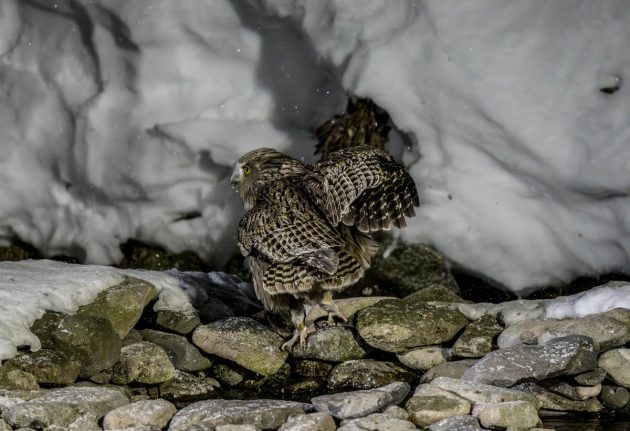When Jonathan Slaght did his research on Blakiston’s Fish Owl in Russia’s Far East – which he describes in his excellent book “Owls of the Eastern Ice” – he had to cope not only with extreme cold but also with rather bad music:
“Katkov filled our commutes with loud music. He was particularly fond of a mix tape of Russian songs dominated by wolf-related themes, which we listened to exclusively for the first week. Eventually, I tired of this and began to poke around the glove compartment for other options, but there were few. It turned out that growling, protracted howls, and lyrics like “You may think I’m a dog, but really I’m a wolf” become tolerable when the alternatives are dance remixes of the Carpenters’ love ballads.”
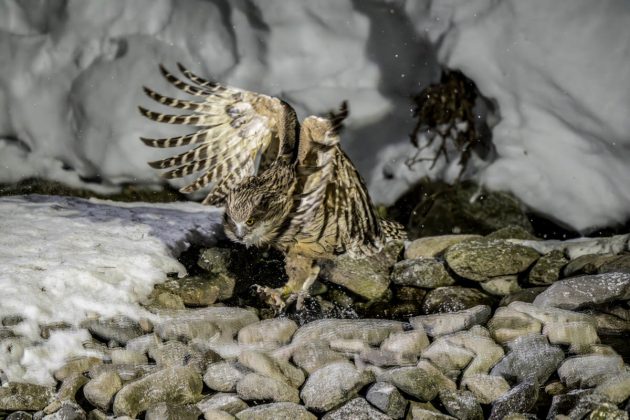
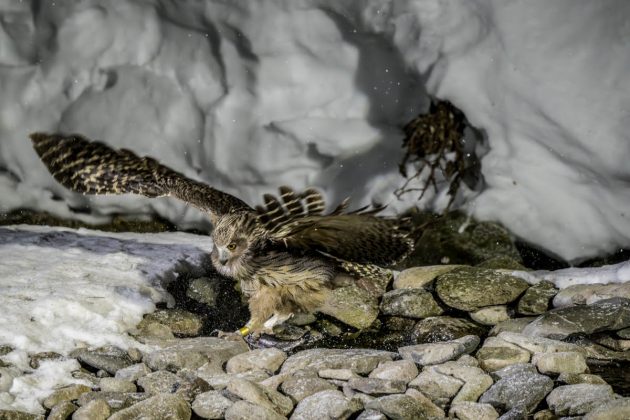
On Hokkaido, seeing a Blakiston’s Fish Owl is much easier. Sitting in a heated(!) hide, one has to cope with the loud noise of older Chinese photographers and the prospect of not seeing the bird at all despite staying up all night, but that is about it.
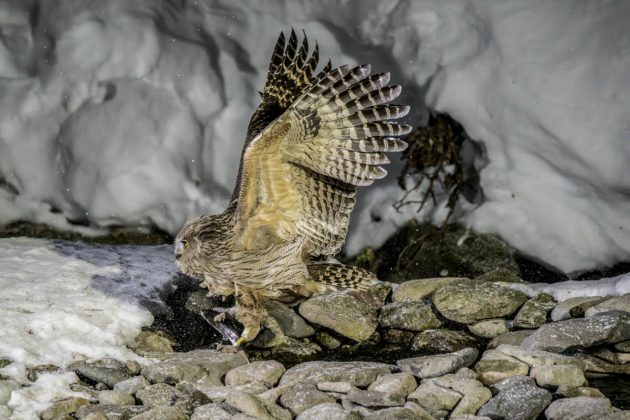
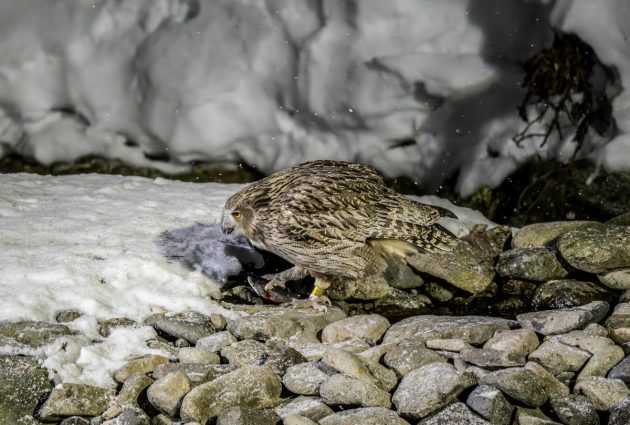
Articles about Blakiston’s Fish Owl typically start by pointing out that this is the biggest owl alive – though the HBW gives this honor to the Eurasian Eagle Owl (“world’s heaviest owl”) and then immediately contradicts itself by giving a weight of 2280–4200 g for the female Eurasian and 3360–4600 g for the female Blakiston’s (in both species, the females are heavier than the males).
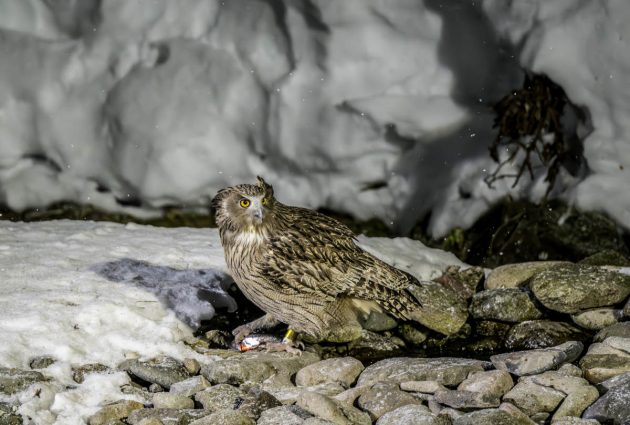
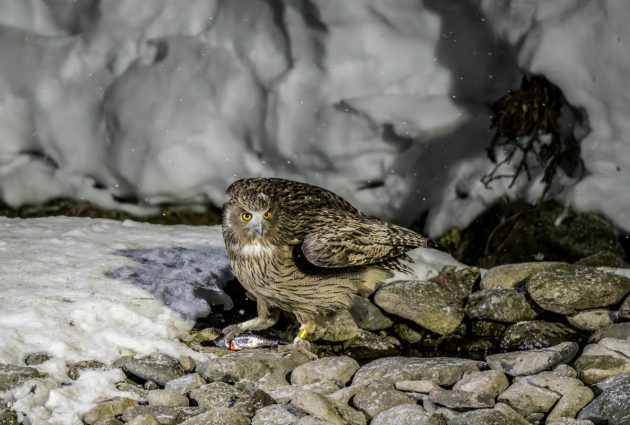
Blakiston’s Fish Owl is endangered – some estimates give a total number of fewer than 2500 mature individuals.
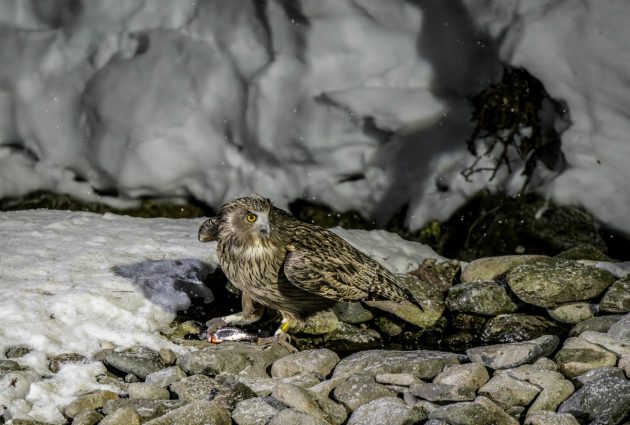
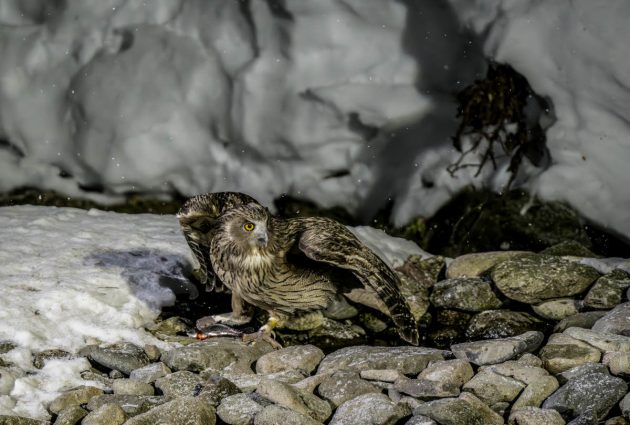
As if that wasn’t a small enough number already, one paper suggests splitting the species based on bioacoustic data and creating the Northern Fish Owl.
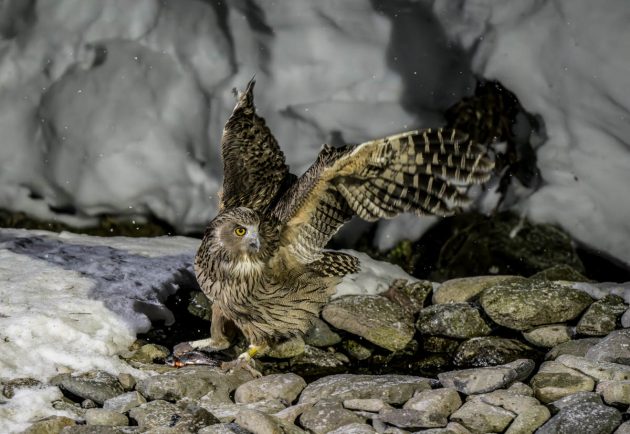
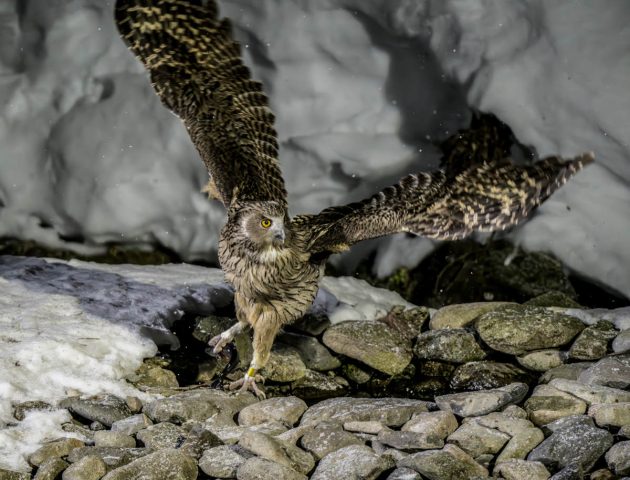
The owl is also at the center of conservation efforts, see here for details.
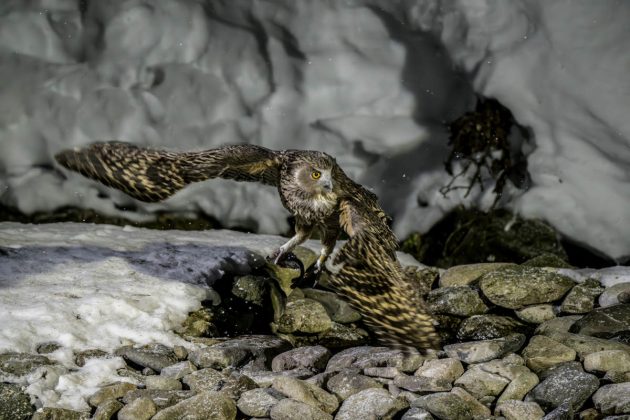
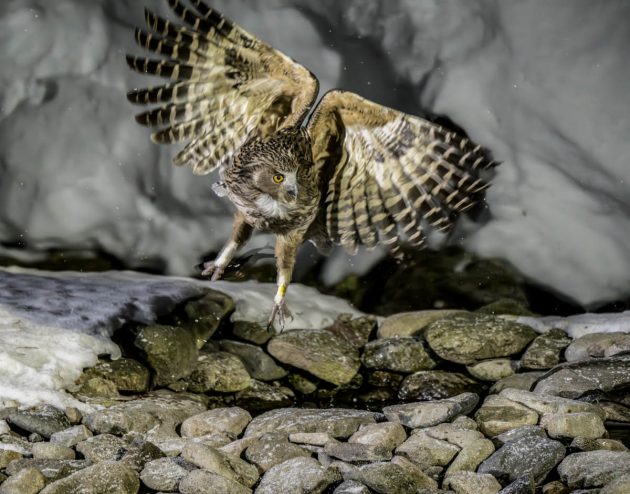
As usual, habitat destruction is the major issue endangering this species. This has other consequences than just lowering the population – habitat that has all the requirements needed by the owl (old forest for nest building, rivers with fish that do not freeze in the winter) is now so rare and fragmented that the genetic exchange between the remaining very local populations is also very limited (think of incest but without the yuck factor).
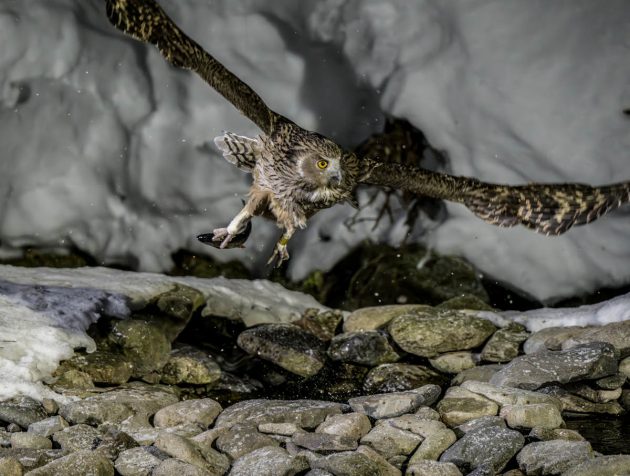
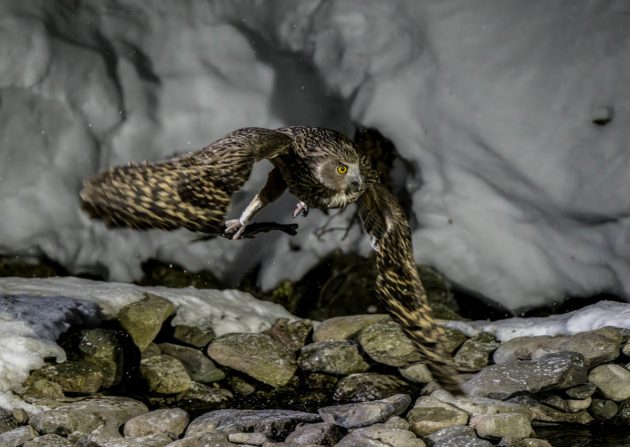
Thomas Blakiston (1832 – 1891) was an English explorer and naturalist, Wikipedia says – though I am still not quite sure whether the word naturalist has any meaning at all. Blakiston explored parts of Canada and Japan (including Hokkaido) but eventually moved to the USA, thinking that it would be warmer there, but then dying of pneumonia in San Diego. How ironic.
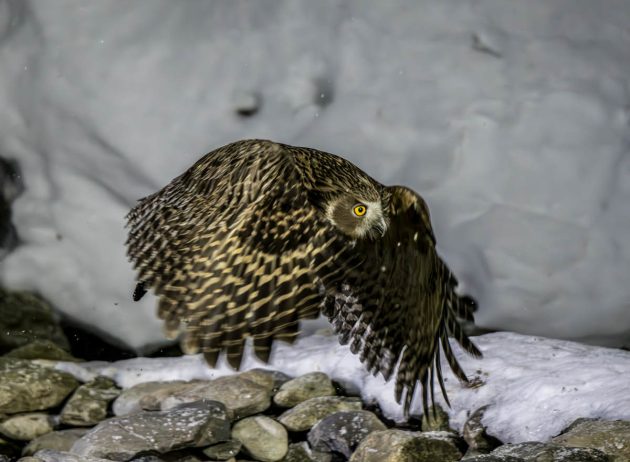
Later in the book mentioned at the beginning of this post, there is another paragraph on music: “As we drove to Terney in the whiteout conditions of a blizzard, listening to the Carpenters lament lost love at ear-bleeding volume, I asked Katkov if he had any songs about wolves.”
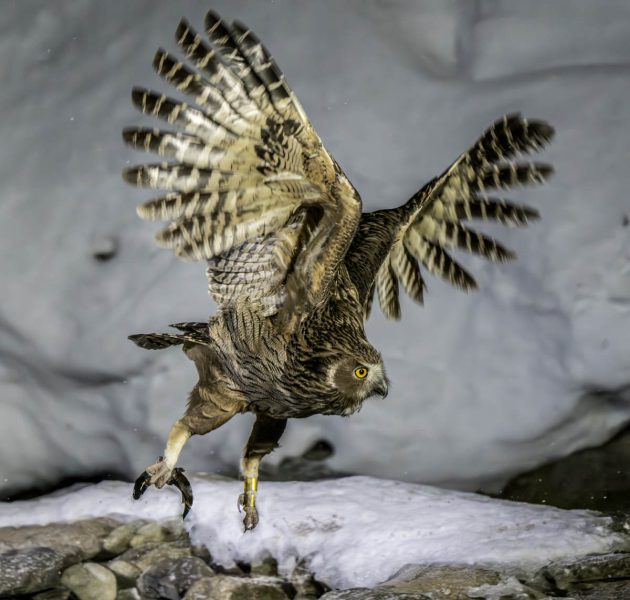
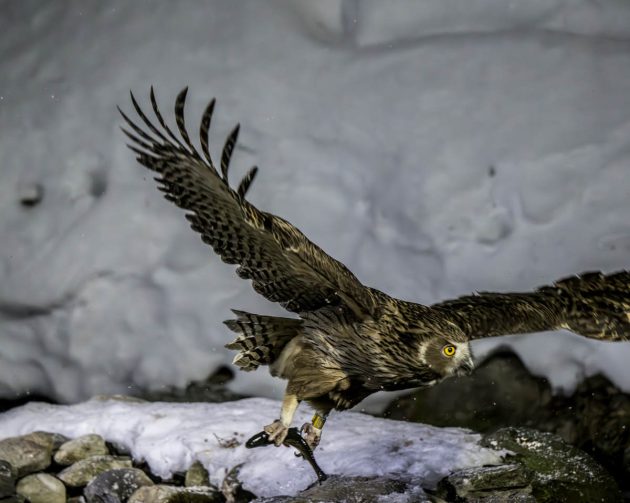
Source link

